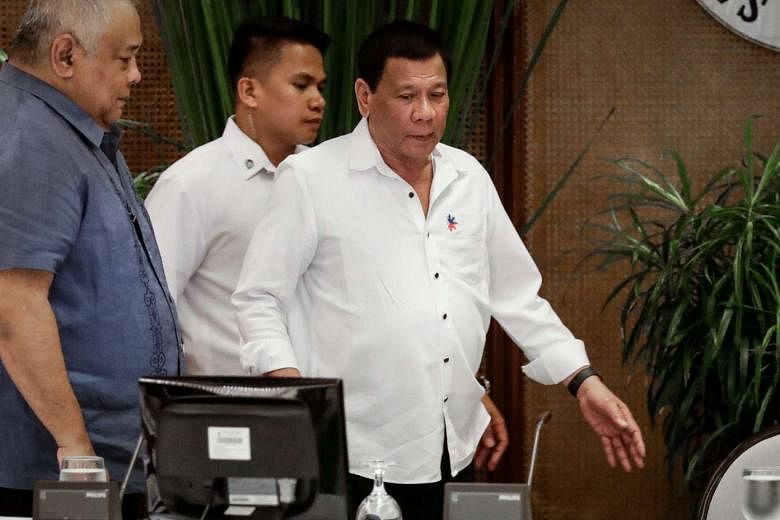MANILA (AFP) - Philippine President Rodrigo Duterte apologised on Tuesday (Feb 28) for failing to save an elderly German hostage who was beheaded by Islamic militants, but insisted ransoms should not be paid.
The Abu Sayyaf, a kidnap-for-ransom network in the southern Philippines that has declared allegiance to the Islamic State group, killed Jurgen Kantner, 70, on Sunday after its demands for 30 million pesos (S$835,060) were not met.
Addressing the German government and Kantner's family, Duterte said he was "very sorry" about his death and that the military had stepped up an offensive against the Abu Sayyaf in an effort to save him.
"We really tried our best. We have been there. The military operation has been going on for some time already but we have failed. That has to be admitted," Duterte told reporters.
"But it's a matter of policy that we do not surrender to the demands of paying ransom. It will just increase the numbers," he said, referring to the Islamic militants.
The Abu Sayyaf, established with seed money from Osama bin Laden's Al Qaeda network, have been kidnapping foreigners and locals for decades and holding them for ransom on its remote island strongholds in the southern Philippines.
Kantner's vessel, the Rockall, was found drifting on November 7 off the southern Philippines with the body of his female companion, Sabine Merz, who had been shot. The Abu Sayyaf claimed credit for the kidnapping.
Military officials on Tuesday said they were still searching for his body, while vowing to "relentlessly pursue" the militants and rescue more than 20 other hostages.
Duterte on Tuesday emphasised that paying ransoms only fuelled the industry.
"If you give in and pay, there will be more victims and no end in sight," Duterte said.
The Abu Sayyaf has earned many millions of dollars in ransom payments, and rarely releases a hostage unless money is paid, according to security analysts.
Relatives and employers of hostages typically pay, rather than governments.
Duterte also repeated Tuesday his request for China to help patrol regional waters to stop more kidnappings, saying Beijing had not given him a response.
Duterte specified he would like China to patrol the Malacca Strait, one of the world's busiest shipping lanes between the Malaysian peninsula and Indonesia's Sumatra island.

